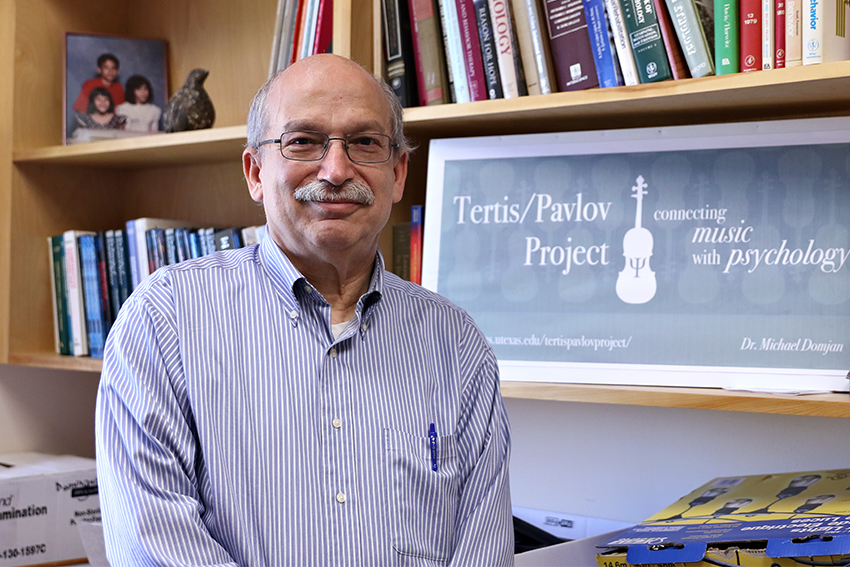As a young man, psychology professor Michael Domjan knew he had a passion for music. His desire to play led him to Juilliard, where he was on the path to becoming a professional musician until he was forced to reconsider the direction he was taking.
“My parents were not convinced that (music) was a way to make a living, so I looked for alternatives and ended up in psychology,” Domjan said. “I’m real pleased at this point to be able to incorporate some of my interest in music with what I know about the science of learning and psychology.”
After spending 35 years away from playing his viola to concentrate on a professional career in psychology, Domjan decided it was time to find a way to integrate his first love, music, with his newfound field of interest — psychology. So, Domjan created the Tertis/Pavlov Project, a series of lectures about the relationship between music and psychology. Domjan said the project is named after psychologist Ivan Pavlov and prominent viola player Lionel Tertis.
“Once I went back to (music) I was looking for ways of incorporating my music into my day job as a psychology professor,” Domjan said. “Instead of writing academic articles about it that would not reach the general public I made these mini-lectures.”
The video lectures, which can be found on the Michael Domjan YouTube channel, explore the areas in which music and psychology intertwine and each begin with a lecture and end with a musical selection.
“I talk about how Pavlovian conditioning is related to music, how B.F. Skinner would teach a music master class and things like that,” Domjan said. “They mostly have an unusual take on things, like the one about why should you practice a musical instrument? Most people think the answer is obvious — you practice to get better at it. But, why does getting better at it take practice and what does practice accomplish?”
Since Domjan created this project more than three years ago, it has drawn musicians, human behaviorists as well as psychology students. Music graduate student Katrina Cox said she has found them especially helpful because they helped her see music through a different perspective.
“(The videos) reinforced a lot of what I had been learning in the music and human learning department,” Cox said. “They’re bringing in and connecting different realms of expertise in a way that I hadn’t been able to look at yet.”
Julie Stephens, music and human learning graduate student, who also watches Domjan’s videos, said she likes the way in which they explain the complicated relationship between these fields.
“The Tertis/Pavlov project is really important because it’s amazing when you can get someone who has a grasp on two fields like that to start drawing connections and comparisons and leveraging what is special about both of those groups,” Stephens said. “That in itself is a highly creative process.”
If she were to find these videos online in her own time, even if she wasn’t doing research in these fields, Stephens said she would still find them interesting because of the helpful and unique information they provide, both for fun and possible future use.
Domjan said the reason he thinks people find an interest in the relationship between psychology and music today is because of the central role that music come to take in people’s lives as more technology for it becomes available.
“It is important because music is very important in our lives,” Domjan said. “People are connected to music much more than they ever were in the history
of mankind.”















